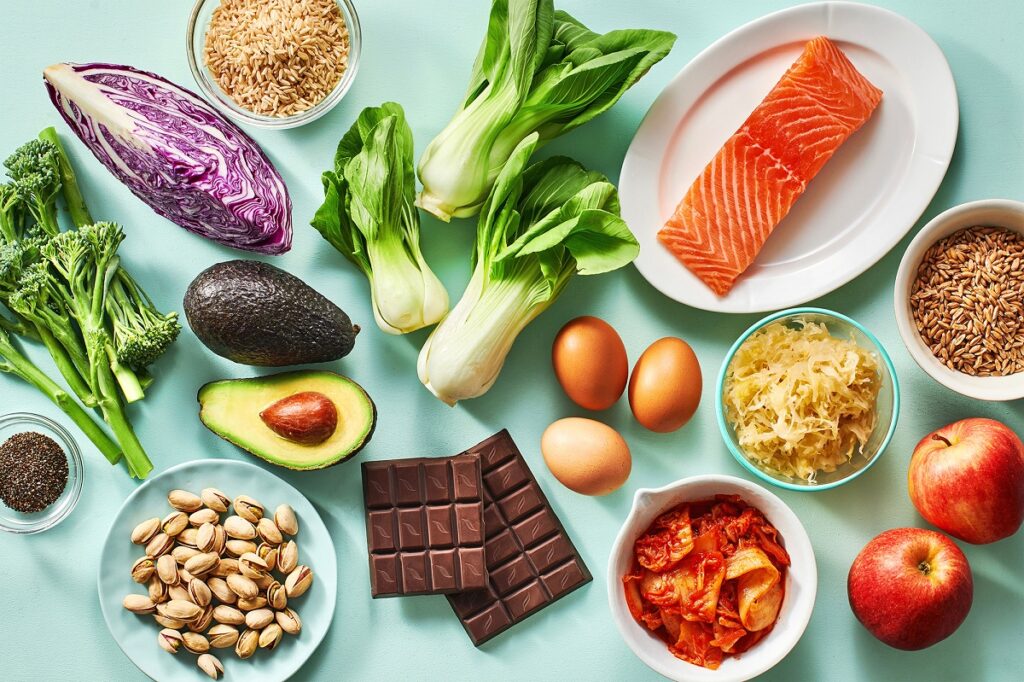Maintaining a healthy weight is crucial for overall well-being, and it’s no secret that a well-balanced diet plays a significant role in achieving that goal. While there are many fad diets and weight-loss gimmicks out there, the key to sustainable weight loss lies in consuming nutritious foods that nourish the body and provide it with the necessary energy to function optimally, according to resources like The Top Supplements. We’ll talk below about some of the best foods to help aid your weight loss goals and keep you feeling your best.
Leafy Greens
Leafy greens, such as spinach, kale, and collard greens, are packed with vitamins, minerals, and fiber. These vegetables are low in calories, high in fiber, and contain high levels of water, which helps to fill you up quickly and keep you feeling satiated for a longer period of time.
Berries
Berries, such as blueberries, strawberries, raspberries, and blackberries, are great sources of fiber, antioxidants, and vitamin C. They don’t have a lot of calories, and they’re high in water content, so they’re a good snack option. Berries can be eaten raw, added to smoothies or yogurt, or used as a topping for oatmeal or cereal.
Whole Grains
Whole grains, like brown rice, oats, quinoa, and barley, are a good source of fiber, which helps to keep you feeling full and satisfied for longer. They also provide essential nutrients, such as B vitamins, magnesium, and selenium, which are essential for overall health. Replace refined grains, such as white bread, pasta, and rice, with whole grains to boost your weight-loss efforts.
Legumes
Legumes, such as beans, lentils, and chickpeas, are a good form of plant-based protein, fiber, and essential nutrients. They are also low in calories and fat, making them a good addition to a weight-loss diet. Legumes can be added to salads, soups, and stews or used as a replacement for meat in vegetarian dishes.
Nuts and Seeds
Nuts and seeds, like almonds, walnuts, and flaxseeds, are an optimal source of healthy fat, protein, and fiber, helping to reduce appetite and promoting weight loss. However, since they are high in calories, it’s important to consume them in moderation. A handful of nuts or a tablespoon of seeds can be added to oatmeal, yogurt, or smoothies for a nutritious boost.
Cruciferous Vegetables
Cruciferous vegetables, such as broccoli, cauliflower, and Brussels sprouts, are packed with vitamins, minerals, and fiber, which can help to reduce inflammation and aid weight loss. These vegetables can be roasted, steamed, or sautéed and used as a side dish or added to salads.
Fruits
Fruits, such as apples, oranges, bananas, and grapes, are a great source of vitamins, minerals, and fiber, which can help to reduce appetite and facilitate weight loss.
High-Protein Foods
Protein is an essential macronutrient that plays a crucial role in weight loss. When consumed as part of a balanced diet, protein can help to promote weight loss by increasing satiety, reducing appetite, and preserving muscle mass.
One of the main ways protein helps with weight loss is by increasing satiety. Protein takes longer to digest than carbohydrates or fats, which means it stays in the stomach longer and helps keep you feeling full and satisfied for longer periods. This can help reduce the amount of food you eat overall, which can reduce calorie intake and weight loss.
Another way protein helps with weight loss is by reducing appetite. Protein has been shown to reduce levels of the hunger hormone ghrelin, which signals the brain that it’s time to eat. By reducing ghrelin levels, protein can help to decrease appetite and reduce the desire to snack between meals. This can help to prevent overeating and lead to weight loss over time.
Finally, protein helps with weight loss by preserving muscle mass. When you lose weight, it’s not just fat that you lose – you also lose muscle mass. This can slow down your metabolism and make it harder to continue losing weight. However, consuming adequate amounts of protein can help to preserve muscle mass during weight loss, which can help to maintain a healthy metabolism and promote ongoing weight loss.
In addition to its weight loss benefits, protein also has several other health benefits. For example, protein is essential for building and repairing tissues in the body, including muscles, bones, and organs. It also plays a role in the production of enzymes, hormones, and antibodies, which are essential for maintaining overall health.

